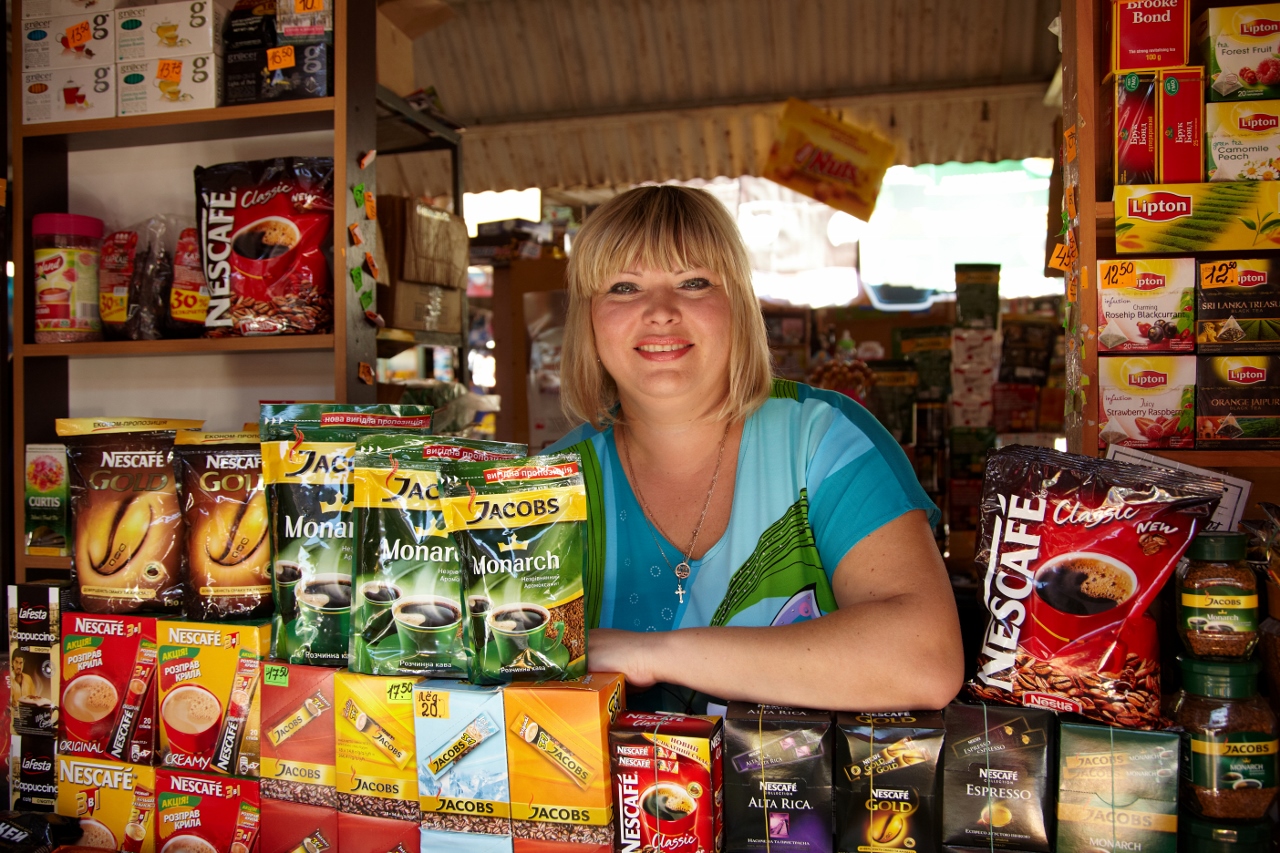When I traveled to Ukraine last January, I was unprepared for several things. The first was the below-zero temperatures, as the country experienced its coldest winter in years. When I arrived bundled in the warmest clothes I owned, I was roundly scolded by our local staff for not listening to their advice to bring warm clothing—as they loaned me something more suitable.
The other surprise came more gradually as I talked with staff and clients and realized the impact of widespread corruption and fraud on people’s perceptions of the future. That the government and its laws would actively obstruct its citizens was expected, a given, and it changed the way people spoke about their dreams.
When I talked with Oksana, for example, she proudly told me of how she had used HOPE’s loans to successfully expand her small market stall selling coffee and tea. She now had two stalls and employed one person, and she’d used her profits to send her daughter to college and make improvements to her home.
But when I asked her about the future, she said she’d have to move to another country in order to fulfill her dream of opening a small coffee shop. Ukraine’s current economic and political situation, she explained, would make opening her own shop nearly impossible.
I’ve been thinking of this lately as I read about the protests in Ukraine over the government’s decision not to sign an agreement with the European Union. HOPE has a long history in Ukraine—it’s where we first started distributing loans 16 years ago. We’ve seen men and women exhibit ingenuity, determination, and hard work as they seek to provide for their families despite the corruption and uncertainty.
















